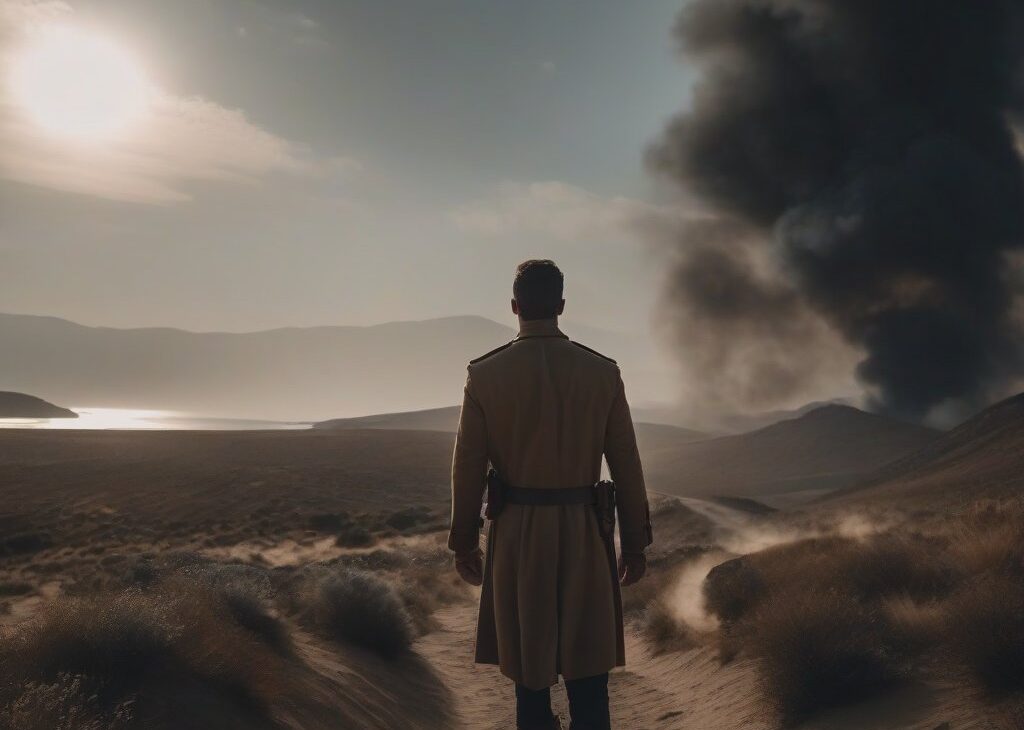-
Table of Contents
- The Heroic Complex: Understanding the Psychology Behind Heroism
- The Origins of the Heroic Complex
- The Characteristics of the Heroic Complex
- The Psychology Behind Heroism
- 1. Evolutionary Psychology
- 2. Social Identity Theory
- 3. Cognitive Dissonance Theory
- The Impact of Heroism on Individuals and Society
- 1. Personal Growth and Fulfillment
- 2. Inspiration and Role Modeling
- 3. Social Cohesion and Unity
- 4. Cultural and Historical Legacy
- Q&A
- 1. Can anyone become a hero?
- 2. Are heroes born or made?
- 3. Are there different types of heroes?
Heroes have always captivated our imagination and inspired us with their extraordinary acts of bravery and selflessness. From ancient myths to modern-day superheroes, the concept of heroism has been deeply ingrained in human culture. But what drives individuals to become heroes? What psychological factors contribute to the development of a heroic complex? In this article, we will explore the heroic complex in English, delving into its origins, characteristics, and the impact it has on individuals and society.
The Origins of the Heroic Complex
The heroic complex can be traced back to ancient times when heroes were revered as demigods and figures of worship. In Greek mythology, heroes like Hercules and Achilles possessed extraordinary strength and courage, making them the epitome of heroism. These mythical tales not only entertained but also served as moral lessons, instilling the idea that heroism was a noble and desirable trait.
Over time, the concept of heroism evolved, influenced by various cultural, social, and historical factors. The rise of chivalry in medieval Europe, for example, gave birth to the knightly hero, characterized by honor, loyalty, and a commitment to protecting the weak. Similarly, the age of exploration and colonization brought forth explorers like Christopher Columbus and Ferdinand Magellan, who were hailed as heroes for their daring voyages and discoveries.
The Characteristics of the Heroic Complex
The heroic complex is not limited to a specific set of traits or behaviors. Instead, it encompasses a range of characteristics that define individuals who exhibit heroic tendencies. Some common features of the heroic complex include:
- Altruism: Heroes are driven by a deep sense of empathy and a desire to help others, often at great personal risk.
- Courage: Heroes display exceptional bravery in the face of danger or adversity, often going against societal norms or expectations.
- Selflessness: Heroes prioritize the well-being of others over their own, sacrificing their own needs and desires for the greater good.
- Leadership: Heroes often emerge as leaders, inspiring and motivating others to take action and make a positive difference.
- Resilience: Heroes possess a remarkable ability to bounce back from setbacks and persevere in the face of challenges.
It is important to note that not all individuals with heroic tendencies become heroes in the traditional sense. The heroic complex can manifest in various ways, from everyday acts of kindness to extraordinary feats of bravery.
The Psychology Behind Heroism
The heroic complex is deeply rooted in human psychology, influenced by a combination of innate traits, environmental factors, and personal experiences. Several psychological theories shed light on the motivations and underlying mechanisms that drive individuals to become heroes.
1. Evolutionary Psychology
According to evolutionary psychology, heroism can be understood as an adaptive behavior that promotes survival and reproductive success. In ancestral times, individuals who displayed heroic traits, such as bravery and altruism, were more likely to protect their kin and ensure the survival of their genes. This theory suggests that heroism is an innate trait that has been shaped by natural selection over thousands of years.
2. Social Identity Theory
Social identity theory posits that individuals derive a sense of self-worth and identity from their membership in social groups. Heroes often identify strongly with a particular group or cause, such as their community, nation, or a marginalized population. By engaging in heroic acts, individuals reinforce their social identity and gain recognition and admiration from their peers.
3. Cognitive Dissonance Theory
Cognitive dissonance theory suggests that individuals experience psychological discomfort when their beliefs or values conflict with their actions. Heroes may be motivated to alleviate this discomfort by aligning their behavior with their internalized heroic ideals. By acting heroically, individuals reduce the cognitive dissonance and reinforce their self-perception as heroes.
The Impact of Heroism on Individuals and Society
Heroism has far-reaching effects, both on the individuals who exhibit heroic tendencies and on society as a whole. Here are some key impacts of heroism:
1. Personal Growth and Fulfillment
Engaging in heroic acts can lead to personal growth and a sense of fulfillment. Heroes often report increased self-esteem, purpose, and meaning in life as a result of their actions. By transcending their own needs and making a positive impact on others, heroes experience a deep sense of satisfaction and fulfillment.
2. Inspiration and Role Modeling
Heroes serve as powerful sources of inspiration and role models for others. Their actions inspire individuals to believe in their own capacity for heroism and motivate them to make a difference in their own lives and communities. Heroes embody the values and ideals that society aspires to, providing a moral compass and guiding individuals towards positive action.
3. Social Cohesion and Unity
Heroic acts have the potential to bring people together and foster a sense of unity and social cohesion. In times of crisis or adversity, heroes emerge as beacons of hope, rallying communities and inspiring collective action. The shared admiration and gratitude towards heroes create bonds among individuals, strengthening social ties and promoting cooperation.
4. Cultural and Historical Legacy
Heroes leave a lasting impact on culture and history. Their stories and achievements become part of the collective memory, shaping the narratives and values of a society. Heroes become symbols of national pride, representing the ideals and aspirations of a nation. Their legacy serves as a reminder of the power of individual action and the potential for positive change.
Q&A
1. Can anyone become a hero?
Yes, anyone has the potential to become a hero. Heroism is not limited to a select few; it is a mindset and a set of behaviors that can be cultivated. Small acts of kindness and bravery in everyday life can contribute to the development of a heroic complex.
2. Are heroes born or made?
Both nature and nurture play a role in the development of heroes. While some individuals may have innate traits that predispose them to heroism, such as empathy and courage, environmental factors and personal experiences also shape heroic tendencies. Heroism can be nurtured and cultivated through education, role modeling, and exposure to heroic narratives.
3. Are there different types of heroes?
Yes, there are different types of heroes. Heroes can be categorized based on the context in which their heroic acts occur. For example, there are everyday heroes who perform acts of kindness and bravery in their local communities. There are also professional heroes, such as firefighters and healthcare workers, who put their lives on the line to protect and save others.






